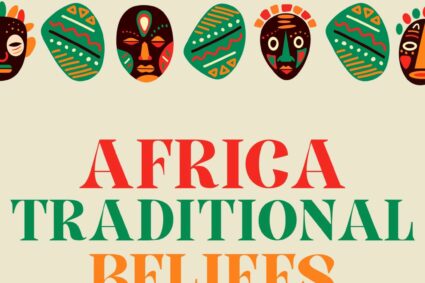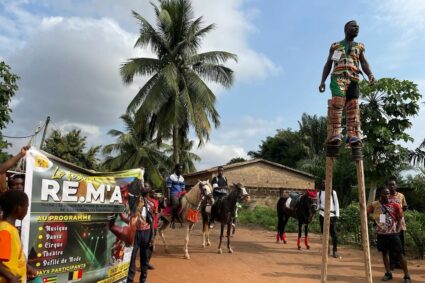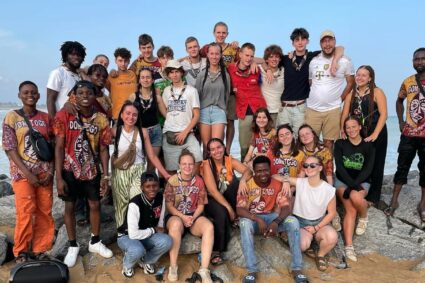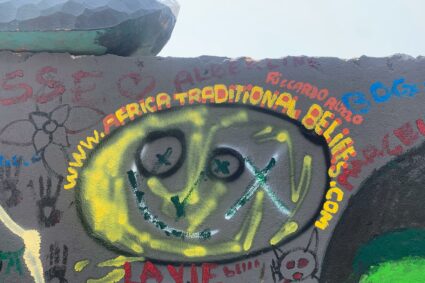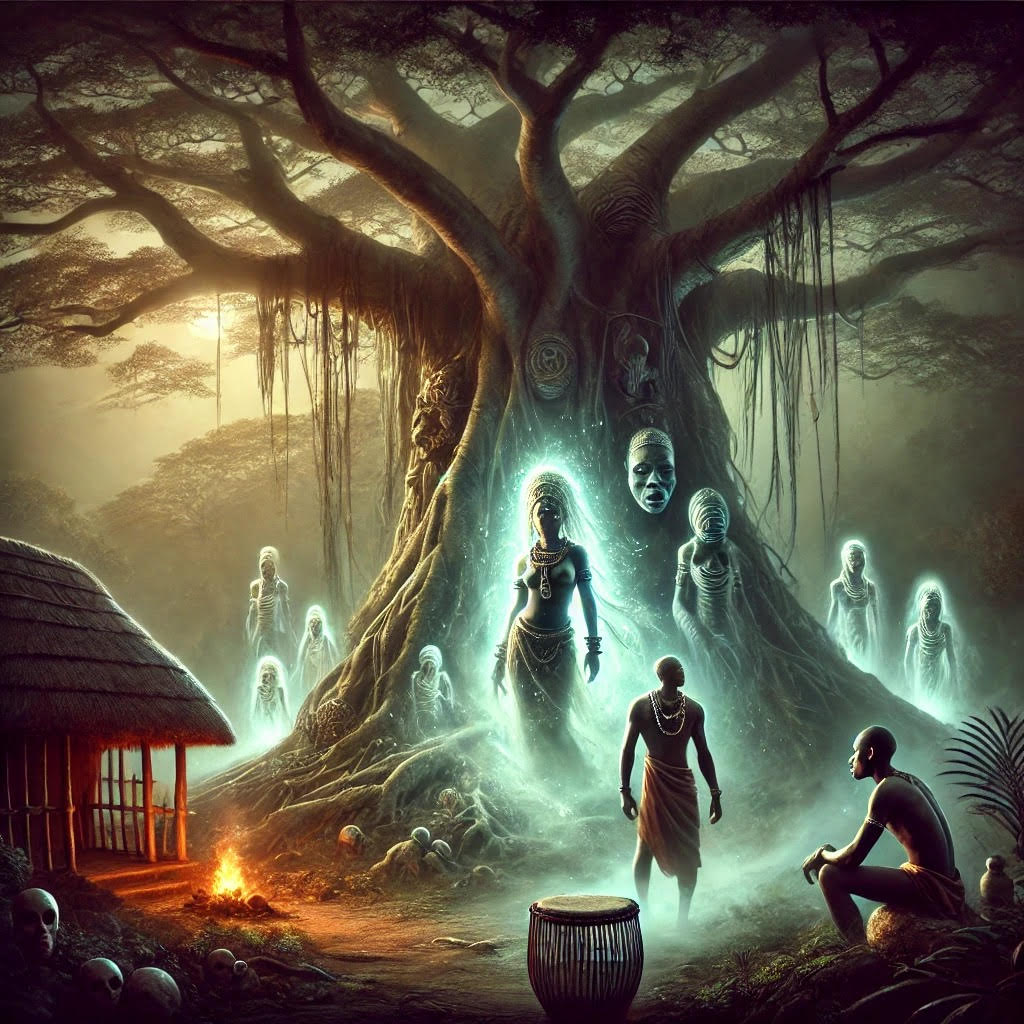
Beneath the vast African sky, in a village nestled within rolling hills, the ancestors whispered through the branches of the sacred iroko tree. Towering over the land, its roots reached deep into the earth, where the souls of the departed found rest. Old Kouadjo, seated on a smooth stone beneath its shadow, stroked his white beard and began to speak with a voice that seemed to echo from another time.
“My children, the heavens and the earth exist in harmony, but when that harmony is broken, the gods rise to restore it. I will tell you a story, a warning left by our ancestors, one where betrayal and forbidden desire summoned a force far greater than man. Listen well, for this story could one day become your own.”
Adou and Koffi were childhood friends, born under the same moon, raised by mothers who shared the same fire to cook their meals. Their bond was so deep that people called them “twin souls.” Their lives were simple, marked by the
rhythms of the harvest, moonlit dances, and prayers beneath the iroko.
But as an old proverb says: “Calm waters often hide crocodiles.”
When Adou introduced his fiancée, Afi, to Koffi, he did so with the innocent trust of one who never imagined his own blood could turn to poison. Afi was beautiful like the dawn, with a grace said to be stolen from the forest spirits. Her soft voice and lilting laugh were like the gentle chime of gourds. From the first moment, Koffi was struck by a fascination he dared not name. But the gods had already seen the shadows stirring in his heart.
As days turned into weeks, the glances between Afi and Koffi grew longer, their silence heavy with unspoken desire. One night, under a starry sky, while Adou worked late in the fields, Afi and Koffi surrendered to their passion. Their union was secret, a stolen act that violated not only their friendship but also the sacred order of the universe.
In the traditions of the village, such an act, where a woman ties her soul to two men bound by blood or spirit, was considered a form of spiritual incest. Friendship between men was not merely a relationship; it was a sacred pact, a bond blessed by the gods themselves. To betray this bond was to insult the ancestors.
But the lovers, blinded by their desire, continued. Their clandestine meetings multiplied, and Afi continued to serve meals to both men, watching them eat together as though she had not tied their souls into a dark knot.
The gods, as the village knew well, never strike immediately. They send signs first, as warnings. One night, Adou dreamed of a great black serpent coiling around him, its fiery eyes piercing his soul. When he woke, a heaviness weighed on his chest. Soon after, he fell ill.
His skin grew pale, his strength ebbed, and a searing fever consumed him. The village healers found no earthly cause for his suffering. An elderly woman muttered under her breath:
“He has been touched by the wrath of the ancestors. This is no ordinary illness.”
Unaware of the storm brewing in his own home, Adou called for Koffi, his soul-brother, to help him. Ignoring the sacred taboos, Koffi rushed to his bedside. He comforted him, encouraged him, even shared a meal with him. It was the final act that sealed their fate.
That night, Koffi’s dreams were haunted by terrifying visions. He saw Adou, dressed in white, seated beneath the iroko and surrounded by towering shadows. Adou spoke with a voice distant and strange:
“Why did you break the bond? Why did you take what was mine?”
Koffi awoke drenched in sweat, but he dismissed the visions as nightmares. Yet the signs grew impossible to ignore. The village birds, which usually sang at dawn, fell silent. A cold wind swept through the night, stripping the leaves from the sacred trees.
Three days after Adou’s death, the village elders gathered beneath the iroko. They knew a taboo had been broken. The chief took a calabash of water and placed a white feather on its surface. When the feather sank to the bottom, the verdict was clear.
“The dead demands justice,” the chief declared.
Koffi’s health began to decline rapidly. He knew his time was near. In his final days, he sat beneath the iroko, seeking forgiveness from the spirits. But what he saw froze him with fear: Adou’s shadow danced among the roots, whispering ancient prayers only Koffi could hear.
When Koffi drew his last breath, the villagers claimed they heard a piercing cry in the wind, as though two souls had finally reunited in the afterlife.
Old Kouadjo leaned forward, his eyes narrowing as though he could see into the souls of his listeners.
“My children, love and desire are like fire. When fed with respect and purity, they warm the heart. But when fueled by betrayal and greed, they consume and destroy everything in their path.
Never forget: the gods see everything, even what hides in the shadows. When you break sacred laws, you do not only betray others, you destroy your own soul. And the ancestors will always ensure that every soul finds its rightful place.”
Silence fell over the gathering, heavy and sacred, as though the spirits themselves lingered to seal the old man’s words into the wind. And beneath the towering iroko, the whispers of the taboo seemed to echo endlessly.
Tony Hemrix
